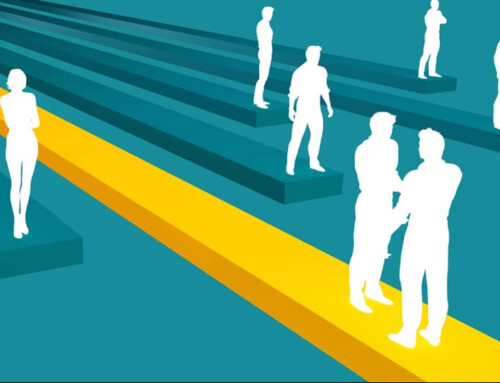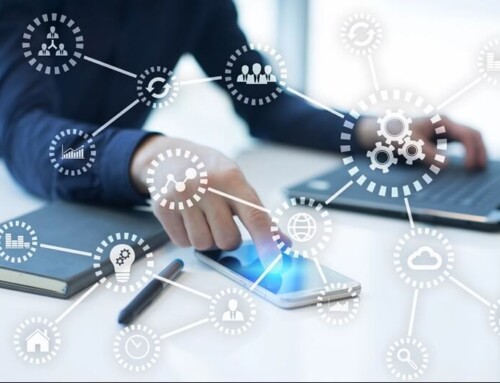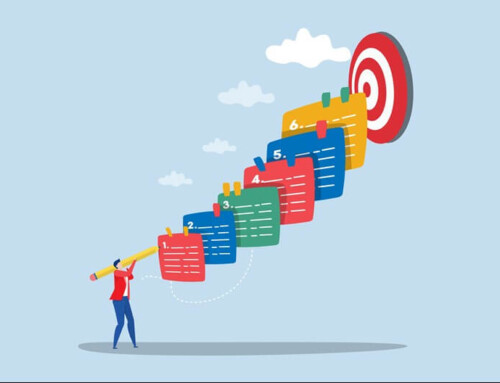Free gifts given to attendees at events like global corporate meetings or group incentive travel reinforce company culture. In certain settings, swag is also used to strengthen camaraderie among participants and can be a powerful visual representation of team unity.
Organizations can also leverage swag to create memorable experiences for their employees and generate long-term positive impact for the entire organization. This opportunity is missed far too often. What are the best ways to ensure swag lives up to its potential to leave a lasting impression? It is easier than you might think!
WHY CORPORATE SWAG MATTERS
You might wonder why you should take the extra effort when it comes to picking out gifts for internal global meetings or group travel incentives. There are some compelling reasons to be thoughtful and deliberate about choosing swag which include:
- Zeal – Swag sets the tone for an exciting, positive, and cohesive environment, welcomes new employees, celebrates and rewards dedicated employees, and promotes company values.
- Branding – Internal customers (such as your employees) can benefit from branding to reinforce group identity, belonging, and a sense of unity.
- Employee Appreciation – Meaningful gifts send signals to your employees that they are important, their contributions are valued, and that as individuals they matter to your organization.
- Recognition – When swag is coupled with a reward that acknowledges employee efforts and/or outstanding contributions this leads to enhanced morale, higher engagement, and maintaining of high performance. Additionally, employees receive positive benefits to their self-esteem and are more satisfied with their workplace.
- Motivation – Swag can serve as an incentive to motivate employees to perform better, achieve personal goals, and drive larger team objectives.
- Team Building – Wearing, sharing, using, or distributing corporate swag items during events encourages team bonding.
- Networking – Swag can expand engagement, spark conversations, facilitate networking, enhance interactions, and deepen connections among participants.
- Long-Term Impact – Carefully curated gifts are tangible reminders for participants to remember and appreciate the organization’s investment in meaningful employee experiences.
- Memorability – Quality, unique, and personalized gifts create positive memorable experiences. Participants are more likely to associate positive experiences with your company. Those memories tap into the greater world, expanding participants’ knowledge of other people and places, and allowing them more opportunities to connect with others.
- Continued Promotion – Long after the corporate meeting or group incentive travel is over, swag that is worn or used will continue to promote the organization’s brand at an organic level.
While these are all valid reasons for swag, how can a material thing bring an experience to life? This is where the items you pick out make a crucial difference.
TYPES OF SWAG THAT CREATE EXPERIENCES
You do not have to spend a fortune or go to the extreme of odd and wacky to make swag memorable. Sometimes a twist on the ordinary can elevate gifts to the extraordinary. That said, going out of the box with gifting is encouraged. Just make sure you adhere to brand guidelines and keep swag appropriate to the event.
Ideas for special swag include the following:
Personalization
For many, an umbrella is just an umbrella – until you personalize each one with the name of an employee. It might seem small, but by merely adding the person’s name, you are letting them know they are seen and heard by leadership. Personalized swag also makes the most seemingly ordinary items stand out. In theory, they will think of the meeting or trip every time they use that item.
While this is one form of personalization, it’s not the only form. Today’s employees want tailored and personalized experiences. This can start with event swag. Depending on the budget for the meeting or incentive trip and how many people are attending, you might want to consider how you determine personalization. For example, attendees might make personalized selections from premium products such as high-end sunglasses or tech gadgets that align with their passions and the theme of the event. Alternately, consider the type of apparel offered such as stylish designs, and fabric and material options that reflect attendee fashion choices or trends.
Here are a few suggestions for getting the most out of personalized swag:
- Pay special attention to the frequency and prominence of your company’s logo on items. Surveys have found that overbranding can be perceived as excessive self-promotion and disliked by employees. (1)
- Ensure that gifts are high quality and relevant to your company’s brand image. If swag is of poor quality or is off-brand for your company’s image this may lead to negative branding and lower employee satisfaction. (2)
- Strive for thoughtful, meaningful, and creative gifts that ensure a positive impact on morale and company culture. (3,4,5)
PRO TIP: Fashion options can be tricky to navigate. Be aware that people come not only in different sizes and with different preferences but may also have underlying conditions that aren’t disclosed. For example, some may have difficulty with buttons or zippers. Others may have sensory issues with different fabrics, textures, or even fit. Options to consider might include cohesion such as through color, or personalization through personal selection from acceptable options.
Creativity
Similar to personalization, you can change the perception of swag by getting creative with the presentation. Instead of merely rolling up a t-shirt emblazoned with your company logo and putting it into a gift bag, start with a creative receptacle for it.
The container could be nearly anything as you are limited only by your imagination – and the budget. Examples that are both memorable and eco-friendly include:
- Custom gift boxes made from recycled materials.
- Plantable gift containers or papers can be planted and these grow into flowers or herbs.
- A multi-use, recyclable canvas bag, personalized with each attendee’s name.
Unique swag shouldn’t be just limited to the container. Gifts should resonate with participants’ interests and values to enhance their engagement as well as to create the most memorable experience. A few suggestions to do so include:
- Conducting surveys and engaging in conversations where you request feedback to understand how gifts and swag will most resonate with them.
- Including items that are culturally relevant to celebrate diversity, cultivate inclusivity, champion cultural values, make employees feel valued, and see the significance of others around them.
- Collaborating with local communities (especially when traveling to a specific destination) to find artisan or other handcrafted items that celebrate local pride and community.
- Providing wellness and self-care-oriented gifts that promote well-being such as healthy snacks, mindfulness kits (e.g., stress-relief tools, diffusers, essential oils, candles), hydration kits, journaling kits (e.g., mindful coloring books, gratitude journals, pens to encourage self-reflection), weighted blankets, eye masks, fitness trackers.
- Catering to the growing reach of tech-savvy employees with high-quality tech items from smart devices, noise-canceling headphones to wireless chargers.
- Incorporating gamification elements to boost participation and increase motivation and offer one-of-a-kind or premium swag items as rewards.
Sustainability
Demonstrating environmental stewardship has almost become a requirement for companies. As concern about the state of the planet becomes more widespread, organizations are expected to follow suit.
Unique and sustainable corporate swag that is different from the usual options might include:
- Plantable papers and pencils – Instead of ordinary paper and pencil, consider those that are embedded with seeds. They can be used and then planted to grow herbs or flowers later.
- Eco-friendly accessories – Stylish and eco-friendly accessories can be personalized and made fun! Try sustainably-made watches, sunglasses, or bamboo jewelry. Additionally, look for laptop sleeves and phone cases made from upcycled materials that can be creative, beautiful, and sustainable.
- Local artisans and goods – Collaborating with local artisans can help locate handcrafted goods such as organic soap, textiles, or other sustainable gifts.
- DIY kits – Whether it’s cultivating a small herb garden, microgreens, wildflowers or starters for cheeses and beers, kits can be fantastic options for gifts especially if they consider the environment.
In addition to the above suggestions, corporate swag can be experiential such as:
- Participating in a guided outdoor experience such as hiking, biking, kayaking, or other nature retreats where the outdoors is appreciated and there is an environmental connection.
- Planting a tree in honor of top achievers in a park or other conservation area.
- Volunteering time to a cause that benefits the earth or has a positive environmental impact.
Charity
Volunteering for charity brings up an excellent point. When organizations donate time or money to charity in the name of employees, they demonstrate a commitment to ensuring employees’ efforts matter. They don’t just value employees for the contributions made, but they want to give back and make a positive difference in the world because of their employees.
For many employees today, corporate social responsibility (CSR) is a key attractor, motivator, and loyalty builder. (6) In fact, companies that invest in CSR initiatives have 13% higher engagement levels than those that don’t. (7) A mere 1% increase in CSR investment leads to a 0.3% increase in sales growth. (7)
One form of corporate swag is the gift of time and/or money to charities and causes that are important to participants during meetings and group incentive travel. This helps participants feel that they are part of a powerful movement and the experience is a memorable one.
To implement volunteer programs and foster a sense of social responsibility designed to enhance employee satisfaction and strengthen company culture organizations should:
- Involve employees in selecting causes and charities that they want to support since this will enhance engagement and demonstrate company commitment to their interests.
- Offer grants or fundraising matching programs to nonprofits where employees volunteer to encourage active participation or further community initiatives.
- Provide team challenges to amplify the impact of volunteer hours, charitable collections, or other social responsibility efforts.
- Collaborate with other employees to foster teamwork and camaraderie while also making a positive impact.
REALIZE THE FULL POTENTIAL OF SWAG
While it is easy to assume that swag is a minor piece of a corporate meeting or group travel incentive, it has the potential to leave a lasting impression on attendees. And, when swag is done right, it can also show them that their employer values each member of the team and places emphasis on high-quality experiences. Employees who believe their company has these values tend to be more engaged and more productive.
When your organization makes a concerted effort to realize the full potential of swag, leadership sets the stage for long-term success.
Are you planning a corporate meeting or group travel incentive? Contact Gavel International for more information on professional meeting planning services.
_________________
SOURCE(S):
1 https://www.evabot.com/blog/overbranding-corporate-gifts-bad-idea/
2 https://www.gemnote.com/blog/employee-swag
3 https://www.tremendous.com/blog/5-employee-gift-ideas-make-people-feel-bad/
4 https://www.4allpromos.com/blog/how-company-swag-can-help-your-business
5 https://youinkit.com/blog/swag-boost-employee-morale/
6 https://www.allassignmenthelp.com/blog/corporate-social-responsibility/
7 https://blog.gitnux.com/corporate-social-responsibility-statistics
- Memorable Meetings in Abundant Sunshine and the Natural Beauty of Phoenix - March 24, 2025
- Build a Culture of Curiosity and Solutions-Driven Change - March 17, 2025
- Gavel International Celebrates GMID 2025 - March 14, 2025






